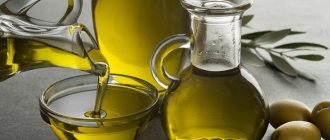The days of sweet lemonade machines are long gone, but the nostalgia remains. Moreover, the true reason for nostalgia is not entirely clear: either the ritual of obtaining the drink through a series of simple manipulations, or taste. The most delicious lemonade for post-Soviet people is tarragon and duchess. But time mercilessly erases them from the picture of the population’s food priorities. Why did this happen and what can modern manufacturers offer in return?
The main problem of lemonade
The main problem of all lemonades, which are served both in Michelin-starred restaurants and sold in stalls at the entrance, is the composition. It will definitely contain either sugar, or flavorings, or flavor enhancers. Children and adults who are accustomed to swallowing liters of sugary drinks will definitely feel or have already felt their destructive power. Metabolism becomes slower, taste buds refuse to accept any food products without a huge amount of sugar, the skin becomes covered in rashes and tries with all its might to show how it suffers. We stubbornly ignore the problem, forget about the glycemic index, near-term diabetes and, of course, obesity, pouring another glass of foaming liquid. So harmful, but so loved.
Content:
- The main problem of lemonade
- How to drink lemonade correctly
- Benefits of the drink
- Lemonade Recipes
- Side effects from drinking liquids
- Preparation and storage of the drink
- How to motivate yourself to drink more fluids
How to solve the main problem of lemonade
The problem has 2 possible solutions. The first says that manufacturers should take the side of consumers, exclude all kinds of harmful substances from the composition, think about people, not about earnings, and sell us an organic product. It sounds utopian, so let's move on to a more realistic option. The only way to protect yourself from chemical fragrances, emerald dyes and gases is to take matters into your own hands and make your own lemonade. It may sound unconvincing, but in practice it works great. To create your own lemonade, you don’t need to graduate from a culinary college or Kenwood course; you just need to know how to cut fruit and screw the lid on the containers tightly.
How did the first lemonade appear?
Lemonade is a sweet non-alcoholic drink made from lemon juice and water.
However, these days adding citrus fruits is not even considered necessary. Although the name Limonade itself refers to the English phrase Lemon added, i.e. "with the addition of lemon." According to legend, lemonade was invented by the cupbearer of King Louis the Great when he accidentally mixed up barrels of wine and lemon juice. On the way to the royal table, he noticed a mistake, but there was no time to correct it. Then the guy decided to take a risk - he diluted the juice with mineral water and presented the drink to the monarch, unexpectedly earning favor. A little later, Peter I also appreciated the recipe, thanks to whom lemonade became fashionable in the Russian Empire.
Who stepped up the gas?
In 1767, the English chemist J. Priestley invented a pump to saturate water with carbon dioxide produced during the fermentation of beer. The industrial production of pumps was established by Jacob Schweppes (the same one who invented the famous Schweppes brand).
began producing carbonated drinks with fruit and berry syrups. However, natural syrups were expensive, so they began to look for a replacement. Citric acid was the first to fill this role, and in 1833, lemonade under the modest name “Excellent Sparkling Lemon Ginger Ale” became the main soda in the civilized world.
How to drink lemonade correctly
As Paracelsus stated, “Everything is poison, everything is medicine; both are determined by the dose.” The Swiss alchemist was definitely right, and his statement applies to absolutely everything, even lemonade. Drinking regime is a kind of ghostly phenomenon that hangs over us and very rarely makes itself felt. A person rarely feels thirsty, but this does not mean that we do not need liquids. Maintaining a drinking regime is the key to the functionality and beauty of the whole body.
A healthy person should drink at least 30 milliliters of liquid per 1 kilogram of weight. During hot periods, this dosage increases and 300 to 600 milliliters of liquid are added to the daily norm.
Monotony becomes boring, so drinking liters of regular filtered water does not bring any pleasure. It is much easier to force yourself to drink from a beautiful glass a multi-colored liquid with a sour/bitter/spicy/sweet note. Homemade lemonade can be just such a healing drink.
Your homemade drink should be radically different from store-bought ones. It is necessary to create an interchangeable complex:
- chemical fragrances for the natural smell of fruits/spices;
- flavorings and stabilizers for fresh pieces of seasonal food products;
- food coloring for a riot of colors of whole plant components.
Sweet bomb. What are the dangers of regularly drinking lemonade?
Summer is coming, and how can you imagine this hot time of year without cold soda if advertising promises “thirst quenching?” Since sales of sweet carbonated drinks increase many times in the summer, this means that there are many people who believe the advertising. Some children and teenagers get so used to this drink that they drink it all year round.
In fact, sweet carbonated water cannot quench your thirst. Scientists consider soda to be one of the most harmful products. It contains water, sugar or sweetener, artificial food colors, acidity regulators, preservatives and carbon dioxide.
Sweet carbonated drinks contain a lot of sugar; a small can can contain up to 16 teaspoons of a mixture of glucose and fructose. Regular consumption of large amounts of sugar leads to insulin resistance (lack of the body's response to insulin), that is, type 2 diabetes develops.
Most of the incoming sugar is stored as fat, which over time leads to obesity, cardiovascular diseases and cancer. Constantly high blood sugar levels lead to a loss of the body's ability to adequately respond to stress, negatively affects the nervous system, accelerates the aging of body cells, contributes to damage to the walls of blood vessels and the development of atherosclerosis. There is evidence that due to frequent consumption of high doses of sugar, the functioning of the reproductive system of boys and girls is disrupted, and puberty in girls occurs earlier than expected.
Often on store shelves you can see “diet” soda, which instead of sugar contains sugar substitutes - aspartame, saccharin, cyclomate and others. Aspartame is the most harmful and most common sweetener. It causes dizziness, nausea, indigestion, headaches, rapid heartbeat, allergies, insomnia, depression, decreased vision, and increased appetite. The sweetener saccharin is a carcinogen and can cause the formation of tumors; cyclomate causes allergies (dermatitis); xylitol and sorbitol cause urolithiasis.
Phosphoric and citric acids are most often used as acidity regulators in the production of lemonade. Together, they very quickly dissolve tooth enamel, irritate the gastric mucosa and can cause gastritis. Phosphoric acid helps remove calcium, magnesium, and zinc from the body, which leads to osteoporosis and bone fragility, loss of muscle mass, and the formation of kidney stones.
Among the preservatives, sodium benzoate deserves attention. It leads to DNA damage, thereby accelerating cell aging and diseases such as liver cirrhosis and Parkinson's disease. In addition, it is a carcinogen.
Many sweet carbonated drinks add caffeine, an artificial energy booster. When consumed systematically, caffeine leads to exhaustion of the nervous system, weakness, mood swings and even depression. Caffeine also has an irritating effect on the mucous membrane of the stomach and intestines, removes calcium from bones and teeth, increases blood pressure, and causes addiction.
Food coloring provides a bright, attractive color to sodas. Synthetic dyes are poorly excreted from the body, accumulate and cause allergic reactions and cancer, and burden the liver. And the “caramel” dye is nothing more than the result of a chemical reaction of sugar with ammonia and sulfates under high pressure and temperature. American scientists, in experiments with laboratory mice, found that consumption of such products in rodents leads to cancer of the lungs, thyroid gland and blood. It is possible that the same effect may occur in humans. And “natural” caramel is burnt sugar.
Many people really like the feeling of tingling carbon dioxide bubbles on the tongue and throat, but it increases thirst, and you want to drink soda again. Carbon dioxide stimulates the production of gastric juice and thereby increases the acidity of gastric contents, which in the absence of food irritates the mucous membrane.
Of course, all substances in soda are contained in safe quantities, and if a healthy adult drinks it no more than once or twice a week, one glass at a time, there will be no great harm. But even for practically healthy people, frequent and excessive consumption of soda is fraught with unpleasant consequences.
High blood pressure, diseases of the heart and blood vessels, stomach, intestines, asthmatic bronchitis, bronchial asthma, diabetes mellitus, kidney disease, obesity, diseases of the nervous system, osteoporosis, family history of cancer, pregnancy, breastfeeding, elderly and young children are contraindications for consumption of these drinks. It is not recommended to drink soda on an empty stomach, wash it down with food, or use it as a tonic drink in the morning.
For school-age children, it is better to choose uncolored lemonade; the single volume should not exceed 100-150 ml, and the frequency of use should not be more than twice a week. Before giving your child a carbonated drink, pour it into a glass and stir well with a spoon to release the gas. But it’s best not to keep soda at home and teach your children healthy drinks. You can make homemade lemonade from natural juices using a siphon.
Benefits of the drink
American doctor Frank Lipman claims that tonic lemonade can remove waste/toxins, restore acid-base balance and energize the body for the whole day. If you choose the right ingredients (for example, ginger and turmeric), you can also disinfect the internal cavity.
Detox
A fragrant drink made from plant ingredients is the easiest way to detox. Choose more citrus fruits, throw them into lemonade and enjoy the effect. Citrus fruits are able to cleanse the abdominal organs of “unnecessary” components, improve the functionality of the body, remove inflammation and solve the problem of the inflammatory process itself. Moreover, citrus water stimulates the gastrointestinal tract, increases salivation and improves appetite. You can drink lemonade (exclusively from natural ingredients) throughout the day.
Weight loss
We still have not learned to distinguish between hunger and thirst. Our body sends the same signals to the brain during both the first and second processes, which is why it is so difficult for us to decide on the spectrum of desires. Feelings of hunger are too often disguised as a lack of fluid in the body. The result is that a person overeats, but hunger never subsides, because the body asked not for cake, but for citrus water.
In addition, lemonade stimulates digestion and speeds up metabolic processes, which also promotes weight loss.
Tone
Scientists conducted an experiment to determine the effects of liquids on athletic performance. 15 professional runners took part in the experiment. The group that drank more tonic fluid showed higher and more productive results compared to those who refused the extra glass of lemonade.
Headache
Don’t rush to reach into the medicine cabinet for a handful of pills as soon as you feel a slight pain in your head. Just drink a glass of warm or chilled lemonade - after a few minutes the pain will subside and disappear forever. Headache may be associated with dehydration, abnormal body function, or normal fatigue. Homemade lemonade, which is much healthier than white tablets from a blister pack, will perfectly cope with all these problems.
Kidneys
Scientists from Australia have proven that the amount of fluid entering the body affects the performance of the kidneys. Timely replenishment of water balance guarantees protection against kidney pathologies and flawless functioning of the system.
Beauty control
A glass of lemonade can be as effective as an expensive trip to the beauty salon. Even the best nourishing face cream will not be able to moisturize, nourish and give a natural glow to our skin better than enriched water. The skin is the largest human organ, which reflects absolutely all the processes occurring inside. A refreshing drink will help:
- moisturize the skin;
- get rid of and prevent the appearance of the notorious orange peel;
- prevent premature aging;
- smooth out existing age-related changes;
- penetrate into the deepest layers of the skin and deliver the maximum amount of useful components to them (which is impossible for a cream, since it only works in the top layer);
- activate the lymphatic system;
- disperse stagnant intercellular fluid.
The amazing properties of lemonade
Drinking lemonade is a great way to cleanse your body of toxins and boost your immunity. Rich in potassium, this drink promotes cardiovascular health and brain function.
It relieves bloating, heartburn and indigestion.
By stimulating the liver, lemonade helps remove toxic substances. This improves the production of digestive juices in the stomach.
Many professional athletes drink lemonade during and after training to replenish their body's salt levels.
Lemon juice is a natural remedy that reduces joint pain and inflammation. Its action is to liquefy and remove uric acid compounds.
It helps prevent colds and flu, promotes weight loss and soothes skin irritations. Pectin, a type of fiber found in lemons, has antibacterial properties and has a positive effect on colon health.
If you drink lemonade regularly and without sugar, you can avoid kidney stones and prevent the growth of cancer cells.
The antioxidants found in lemon fight cell damage, slow down aging, and protect skin from harmful UV rays.
Take half a lemon, squeeze it, dilute it in a glass of water. Add stevia or honey and enjoy!
Try drinking this drink in the morning to let the lemonade stimulate your digestive system.
If you have the flu, drink warm water with lemon. The drink will help you relieve a sore throat and reduce cough.
Lemonade Recipes
Tarragon
We will need:
- filtered water – 200 ml;
- Jerusalem artichoke syrup (can be replaced with honey) – 50 ml;
- tarragon leaves – 100 g;
- sparkling mineral water (the quantity depends on the selected container).
Preparation
Add Jerusalem artichoke syrup to filtered water, put on fire and boil for 5 minutes. Grind the tarragon leaves in a blender, and add the resulting green mixture to hot diluted Jerusalem artichoke syrup. Remove the liquid from the heat, leave to cool at room temperature, strain the syrup and pour into any suitable container. Add a few tablespoons of Jerusalem artichoke syrup with chopped tarragon to mineral water, add a slice of lemon, 2 ice cubes, a sprig of mint, close your eyes and imagine that you are 10 years old again.
Green Kombucha
Culinary fact: this is a drink made from kombucha. During the secondary fermentation process, you can add absolutely any ingredients to it: fruits, berries and your favorite spices. This exotic lemonade has become a real superfood of the new generation. Kombucha has a detox effect on the body, activates metabolic processes, improves appetite and fills the body with vital phytonutrients.
We will need:
- spirulina powder – 1 tablespoon;
- prepared kombucha infusion (can be bought at a chain supermarket) – 1 l;
- berries, fruits, spices to taste.
Preparation
Mix the ingredients and let the drink brew for 1-2 days at room temperature.
Apple lemonade with rosemary
We will need:
- green apples – 5 pcs;
- agave syrup (can be replaced with honey or Jerusalem artichoke syrup) – 5 tablespoons;
- rosemary – 4 sprigs;
- lemon juice – 2 tablespoons;
- sparkling mineral water – 1 l;
- ice to taste.
Preparation
Peel and core the apples, place them in a blender and blend into a thin porridge. Pour syrup and lemon juice into the puree, beat lightly and place in the required container. Pour water into the container with agave-apple puree, add rosemary and ice. Mix the contents of the bottle thoroughly and drink throughout the day.
Is there any benefit?
No matter how many reports are made and no matter how many examples are given about the dangers of lemonades with gas, such water can even be healthy. It all depends on the contents of the bottle. So, if the composition of sweet carbonated water includes natural ingredients or extracts of medicinal herbs, then such a drink will only have a positive effect on the body. For example, “Duchess” and “Tarragon”, which contain tarragon - an effective natural remedy that has a vasoconstrictor effect and improves the functioning of the digestive system. The composition of the Sayany and Baikal carbonated waters includes Leuzea extract - a plant that is known for its ability to tone the body and relieve fatigue, increase muscle activity and normalize the functioning of the nervous system. You can drink such waters even if you have diabetes.
Video
Side effects from drinking liquids
There is no need to worry about disruptions in the body due to excessive consumption of lemonade. A person simply cannot pour into himself the amount of water he does not want. Everyone has an individual level of water balance, which we maintain on an intuitive level. There is a risk of going under rather than overboard with water and drinks.
Dehydration is the real problem. Modern man is in a constant rush. We may forget to pick up our children from kindergarten, so there is no need to be surprised at irregular water consumption.
What are the risks of dehydration? Water is involved in all chemical reactions in the human body. If there is not enough water, cells begin to separate moisture from their personal reserves. We begin to age faster, move less, look worse and take longer to digest food.
Is lemonade a healthy drink?
Lemonade is one of the most popular drinks all over the world. It's inexpensive and easy to make. It has a great taste and lemonade quenches your thirst well. Is homemade lemonade good or bad? Of course it has more benefits!
Only one thing is important: you must drink it without sugar or sweeteners. Simply mix chilled water with fresh lemon juice and drink immediately. If you want to drink lemonade later, put the drink in the refrigerator.
Some people drink warm water with lemon juice early in the morning to flush out toxins. This drink strengthens the immune system and increases the metabolic rate. Choose what you like best.
Lemonade is good for the health of your skin and is good for eyelash growth. It improves digestion and has many other beneficial properties. This delicious, craveable drink contains vitamin C, iron, magnesium, calcium and antioxidants.
Even though lemonade is a little sour, lemon alkalizes your body. As a result, the pH balance is restored.
To make the drink even more tasty and healthy, add peppermint leaves, sliced cucumbers, orange juice or other active ingredients.
Preparation and storage of the drink
The right water for cooking
The main component of lemonade is water. The body uses it not only to maintain water balance, but also as a storehouse of microelements. There is a concept of the physiological usefulness of drinking liquid. Physiologically complete water is considered to be water that contains iodine, calcium, fluorine and magnesium. It is this water that helps a person to cheer up and recharge with energy for a long time. Harsh filtration in industries often eliminates important minerals, but exceptions can be found.
Additional factors:
- acidity should be 7 (more acidic or alkaline water is used only for medicinal purposes);
- minimum hardness threshold – 1.5 mg – eq/l;
- the maximum permissible concentration of chlorides/sulfates is 250 g/l, magnesium – 65 g/l, potassium – 20 ml/l, sodium – 200 ml/l.
- the liquid should be clear and clean.
Correct storage container
Best materials of the month
- Coronaviruses: SARS-CoV-2 (COVID-19)
- Antibiotics for the prevention and treatment of COVID-19: how effective are they?
- The most common "office" diseases
- Does vodka kill coronavirus?
- How to stay alive on our roads?
Modern people do not have any special space for choosing a container. The container can be glass or plastic. The ideal option is glass containers. It is chemically inert, does not release harmful chemicals when heated and does not react with the contents.
With plastic, things are a little more complicated. PET is most often used in the food industry. It is designed for small volume containers and is made of polyethylene terephthalate. A special mark is placed on PET - a triangle with the number 1 inside. This material is considered the safest from the point of view of processing and recycling.
For larger containers, PVC is used. This is frankly a bad material, during the production and disposal of which a lot of pathogenic substances are formed. There is no need to store your proper homemade lemonade in it, otherwise the benefits will be dubious.
Is it healthy to drink lemonade? Nomination "First steps in science"
In the lessons of the surrounding world, we studied the section “The Human Organism”. In one of the lessons we talked about human nutrition. And I was interested in the question: why doesn’t my mother allow me to drink lemonade? This is how the research topic arose: “Is lemonade good or bad?”
Hypothesis: I think that lemonade is not so harmful to the human body.
Purpose: to find out whether sweet carbonated drinks are harmful or beneficial to human health, to find out whether a person develops diseases when consuming them.
Progress of the study:
First, I found out what lemonade is and, after studying scientific literature, I learned the history of lemonade.
Using the labels, I studied the nutritional composition of carbonated drinks: “Forest Valley”, “Fanta”, “Mirinda”, “Pepsi-Cola”.
I would like to draw your attention to the most harmful additives in lemonades:
- Sodium benzoate (E 211) can cause cancer.
Phenylalanine is an amino acid. The content of phenylalanine is warned on labels.
E 338 – orthophosphoric acid.
E 330 – citric acid.
E 150a – sugar color I simple (simple caramel).
Instead of sugar, use a sweetener: slamix, sweet. Because of this, its energy value is very low (0.4 kcal). The price is also lower.
I really like drinking carbonated drinks. But I noticed that drinking lemonade did not quench my thirst; I still wanted to drink. So I drink more and more of the drink until it is completely gone.
- E 110 – yellow dye “Sunset”. As a food additive, it is prohibited in many countries of the world, but in Russia and Ukraine it is considered acceptable for use in the food industry.
Carbon dioxide. It is not dangerous in itself, but can cause indigestion or a painful attack.
Antioxidants: ascorbic acid (E300) and sodium ascorbate (E301). The shelf life of drinks increases several times.
Pepsi-Cola contains caffeine, which stimulates the heart and increases the load on it, which is not beneficial.
All these drinks are recommended to be drunk chilled. But there is one general effect: the stay of food in the stomach is reduced from 4–5 hours to 20 minutes and you want to eat again. This leads to obesity. I noticed that at the birthday party my friends ate a lot, drank lemonade, then played, but after 20 - 30 minutes we were hungry again and sat down at the table. Never wash down food with cold drinks! The permissible amount of lemonade is no more than 250 ml.
Experience 1.
I found out the environment of the drinks: “Forest Valley” and “Mirinda” have a normal environment, “Fanta” is acidic, “Pepsi-Cola” is alkaline.
With the help of Pepsi, I cleaned the medallion, silver chains, the kitchen table, and a piece of chicken completely decomposed. Conclusion: if you drink Pepsi-Cola, the alkaline environment will corrode the walls of our stomach, which will lead to diseases of the gastrointestinal tract.
I evaporated the liquid, leaving a dark brown viscous mass at the bottom of the pan, similar to boiled burnt sugar.
Lemonades contain dyes. I colored eggs in lemonade. I got eggs that were brown, orange, and pale yellow. The eggs were only colored on the outside.
I interviewed 60 children and 26 adults.
During the survey, I discovered that:
- children love lemonade, but adults do not like it very much or at all;
they drink Lesnaya Dolina lemonade more often;
Most people consider lemonade to be harmful to human health, but they drink it.
I made homemade lemonade. The drink turned out to be tasty, rich, and most importantly healthy and without any “chemicals”.
Conclusion: I love lemonade and used to drink a lot of it. But, thanks to the research work carried out, I reconsidered my tastes and came to the conclusion that you should not drink carbonated drinks, despite neither advertising nor the tastes of your friends. I am not an enemy to my body!
How to motivate yourself to drink more fluids
At some point, even your favorite lemonades can become boring. And the urge to lie down will easily override your efforts to maintain normal water balance. To increase your motivation, you can pay attention to 3 important aspects: savings, permanent reminders, constant presence.
Saving
Homemade lemonade costs pennies compared to what is offered in restaurants or chain hypermarkets. Moreover, you are confident in the quality of the liquid you consume, which also gives additional motivation.
Permanent reminders
Install a mobile application that will calculate your individual fluid intake and will constantly remind you to “fill up the tank.” Some apps are so unforgiving that they will turn your life into a hell of vibrations and reminders until you reach your daily intake.
Why is Pepsi harmful? What will happen to your body if you drink Coca-Cola?
After 10 minutes. 10 teaspoons of sugar will hit your system (this is the daily recommended amount). You don't feel like vomiting because phosphoric acid inhibits the effect of sugar.
In 20 minutes. There will be a surge in insulin in the blood. The liver converts all sugar into fats.
In 40 minutes. Caffeine absorption is complete. Your pupils will dilate. Blood pressure will increase because the liver releases more sugar into the blood. Adenosine receptors are blocked, thereby preventing drowsiness.
In 45 minutes. Your body will increase production of the hormone dopamine, which stimulates the pleasure center of the brain. Heroin has the same principle of action.
After an hour. Phosphoric acid binds calcium, magnesium and zinc in your intestines, speeding up metabolism. Increased calcium excretion through urine.
In more than an hour. Diuretic action comes into play. Calcium, magnesium and zinc found in your bones are removed, as are sodium, electrolyte and water.
More than an hour and a half later. You become irritable or lethargic. All the water contained in Coca-Cola is excreted through urine.
When buying sweet water for a child, we know that an excess of sugar can harm him, but we may not realize that there is no sugar there, and that sugar is generally a useful medicine compared to what is actually dissolved in this sweet water.
* Cyclamate is a synthetic petroleum-based substance, 200 times sweeter than sugar, a carcinogen, and causes cancer. In 1969, it was banned for use in the USA and Canada. In 1975 in Japan, South Korea and Singapore. And in Indonesia, which supplies cyclamate to Russia, it is also prohibited. However, in Russia, 70% of all sweeteners are cyclamate, modestly called K-952 in carbonated waters. It is imported into the country at the rate of 1000 tons per year, because it is very cheap and has no limited shelf life (300 years cannot be considered a time limit). During World War II, cyclamate, among other cheap products, was supplied to concentration camps. Other sweeteners, even if they are sold in pharmacies and recommended for diabetics, are not at all harmless. Saccharin and acesulfame potassium cause cancer. Aspartame (aka: sweetley, sweetener, sucrazide, nutrisvit) provokes headaches, fatigue, palpitations, and depression. It does not cause cancer, but in some cases it does cause brain tumors and tuberculosis.
Harm and contraindications
Drinking sweet lemon water may cause side effects in people who:
- are allergic to citrus plants;
- have too high acidity of gastric juice;
- are overweight or have diabetes (sugar-free recipes do not have such contraindications);
- suffer from various diseases of the gastrointestinal tract, liver and kidneys.
You should also remember that fruit drinks should not be given to children under the age of one year. A slightly older child can drink a little juice diluted with water (no more than 10%), but drinking soda before 6 years of age is generally not recommended.
Other potentially dangerous drinks
"Tea bags
At one time, studies were carried out that made it possible to establish that when brewed, such a drink acquires the color of tea due to the presence of tea dust in it. In this case, the contents of tea bags may be affected by mold. The probability of such an unpleasant prospect is 20%. The risk is higher when purchasing an “old” drink - products with damp sachets. Experts say that it is much safer to pamper children with loose leaf tea.
Instant coffee
There is a lot of harm from both instant and regular (insoluble, ground) drinks. Why? Both have a lot of caffeine.
The benefits of homemade lemonade
A drink prepared at home exclusively from natural ingredients will always be healthier than a store-bought one. This indisputable fact cannot be ignored, since we are talking about the safety of our health.
However, is homemade lemonade as useful as we think about it, and will it one day be able to dispel our illusions with the sudden appearance of side effects? Let's look at everything in order. Let's start, of course, with the benefits of lemonade. Fortunately, the drink does not lack this quality.








